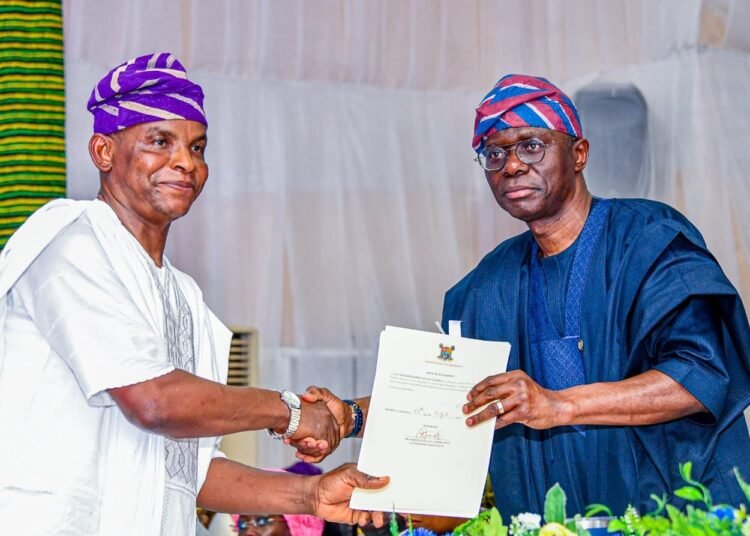The Lagos State Government has announced plans to host the 67th edition of the meeting of the National Council on Education (NCE) between Monday, 11 and Friday 15 December.
The state’s Commissioner for Basic and Secondary Education, Jamiu Alli-Balogun, who addressed a briefing on Tuesday, said the weeklong event will appraise key educational policies that will drive the sector in the country.
The meeting, which is themed: “Addressing the Challenges of Policy Implementation: A Panacea for the Achievement of Education 2030 Agenda,” will feature different sessions that will culminate in the NCE session to be chaired by the Minister of Education, Tahir Mamman, a professor.
Agenda
According to the commissioner, as the statutory meeting where major decisions that will shape the country’s education sector for the next year will be taken, participants will include commissioners of education across the country and the education secretary from the Federal Capital Territory (FCT).
Mr Alli-Balogun said as already reflected in the theme of the meeting, the agenda will include all issues relating to the education sector, particularly uniting the stakeholders to rally around the government towards achieving the government agenda.
He said at the meeting, recommendations of various organs of government and policymakers including those of the Reference Committee and Plenary Meeting of the Joint Consultative Committee on Education (JCCE), will be ratified.
The commissioner said as the host of the event, Governor Babajide Sanwo-Olu will also join Mr Mamman and the Minister of State for Education, Yusuf Sununu, to galvanise support for the adoption of critical decisions to be taken at the meeting.
Plan for education in Lagos
Meanwhile, while responding to questions on his plans for the education sector in the state, Mr Alli-Balogun said he is committed to boosting and expanding the scope of technical and vocational education in the state in line with the THEMES agenda of Mr Sanwo-Olu.
He said the ministry will establish additional technical colleges and vocational training centres to provide access to quality training for more youths.
He said his dream is to ensure that no able youth in the state is idle.
“We want to take as many youths as possible away from the streets and expose them to technical and vocational education so that they can be more useful to themselves and society at large and become employers of labour,” he said.
He assured that Lagos would continue to seek opportunities to provide additional computers to enhance teaching and further expose students in public schools to the use of computers.
Teachers’ retirement age
The commissioner also promised the teachers in the state that as soon as the ongoing consultations are concluded on the new retirement age policy of 65 years for teachers, the ministry will communicate appropriately.
He said Lagos has always prioritised the welfare of its workforce, noting that when a similar policy was implemented by the federal government for university lecturers on a professorial cadre, it was domesticated in Lagos.
“So I can assure you that this will not also be different. As soon as our consultations are concluded, we will make our position known, and I am sure it will be positive,” the commissioner said.
Speaking about illicit use and drug abuse among youths, the commissioner expressed worries, saying that he addresses the issues anytime he is within an assembly of youths.
He commended the Ministry of the Environment and Water Resources for demolishing shanties located located the schools in the state. He said the sensitisation exercises would be intensified through community leaders and other stakeholders to drive the campaign.
He added, “We are not stopping at these measures. We are also considering barring the location and sale of alcoholic drinks near the school environment to prevent students from temptation.”
Meanwhile, Mr Alli-Balogun was joined at the briefing by the Executive Secretary of the Lagos State Technical and Vocational Education Board (LASTVEB), Moronke Azeez; Permanent Secretary in the Ministry of Basic and Secondary Education, Abayomi Abolaji, and the Director of Basic Education Services, Adeyemi Adebayo.
About NCE
As the statutory highest-ranking decision-making organ on education policies in Nigeria, the establishment of NCE was born out of the need to have a non-partisan, national and strategically placed organisation that would “address a wide range of issues impacting the education process.”
The aim is to ensure continuity in policy development as well as to facilitate greater community involvement in the management of educational institutions.
Source: Premium Time Nigeria






























































